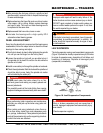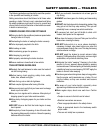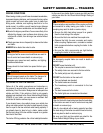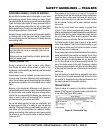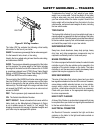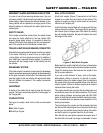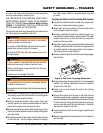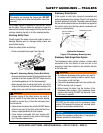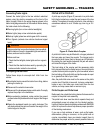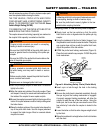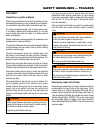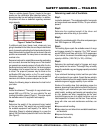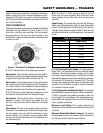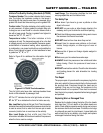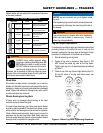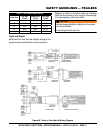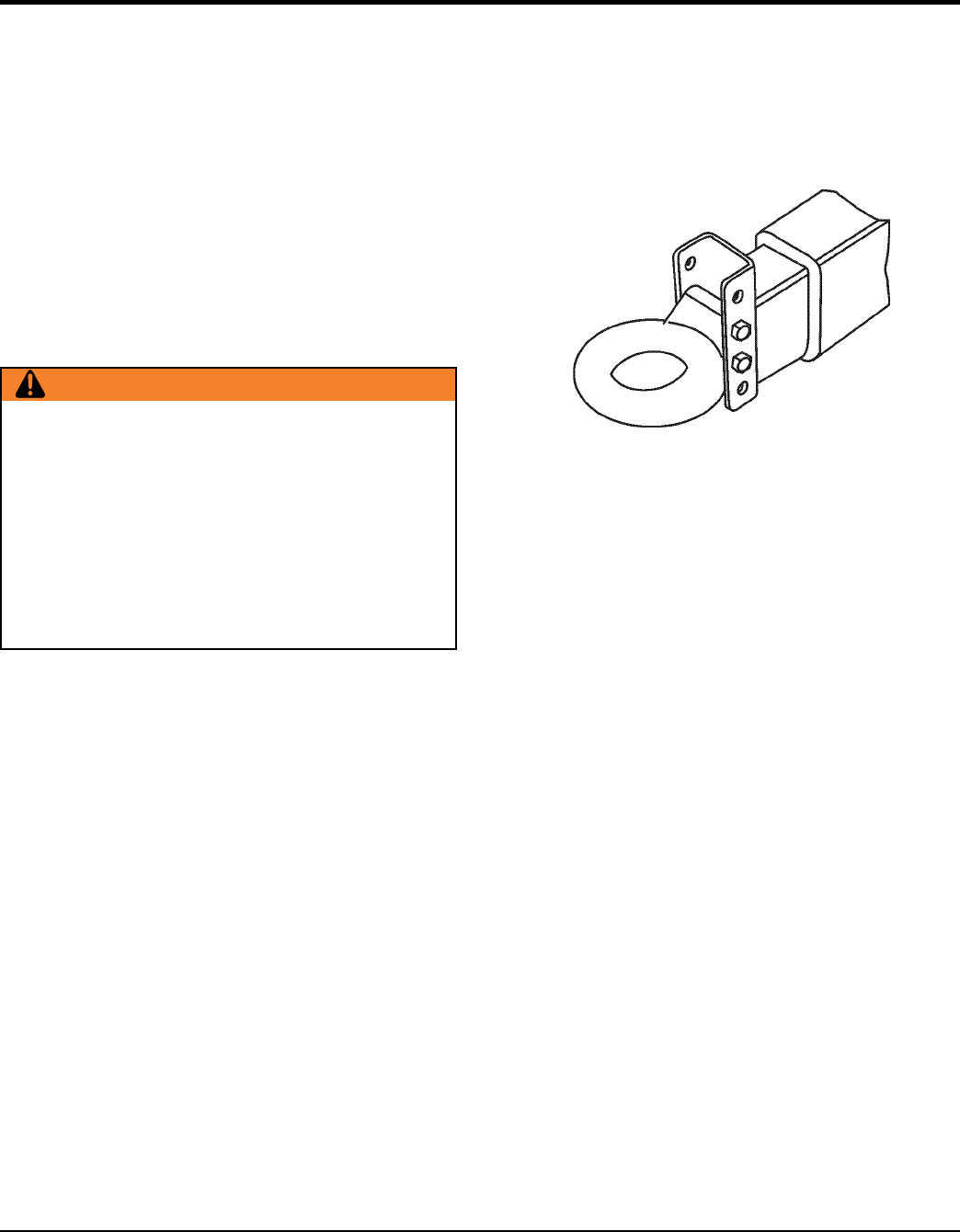
PAGE 34 — MLT25 SERIES LIGHT TOWER • OPERATION MANUAL — REV. #0 (11/28/12)
SAFETY GUIDELINES — TRAILERS
Connecting Trailer Lights
Connect the trailer lights to the tow vehicle’s electrical
system using the electric connectors at the front of the
trailer (tongue). Refer to the wiring diagram shown in the
trailer wiring diagram section of this manual. Before towing
the trailer check for the following:
Running lights (turn on tow vehicle headlights).
Brake Lights (step on tow vehicle brake pedal).
Backup Lights (place tow vehicle gear shift in reverse).
Turn Signals (activate tow vehicle directional signal
lever).
Uncoupling the Ball Hitch
Follow these steps to uncouple ball hitch from tow
vehicle:
Block trailer tires to prevent the trailer from rolling, before
jacking the trailer up.
Disconnect the electrical connector.
Disconnect the breakaway brake switch cable. Promptly
replace the pullpin in the switchbox.
Before extending jackstand, make certain the ground
surface below the jackstand foot will support the tongue
load.
Rotate the jackstand handle (or crank) clockwise. This
will slowly extend the jack and transfer the weight of the
trailer tongue to the jack.
WARNING
Improper electrical connection between the tow vehicle
and the trailer will result in inoperable lights and electric
brakes, and can lead to collision.
Before each tow:
• Check that the taillights, brake lights and turn signals
work.
• Check that the electric brakes work by operating the
brake controller inside the tow vehicle.
PINTLE HITCH COUPLER
A pintle eye coupler (Figure G) connects to a pintle-hook
hitch that is located on or under the rear bumper of the tow
vehicle. This system of coupling a trailer to a tow vehicle is
sometimes referred to as a “lunette eye, tow ring or G.I.
hitch.”
Figure G. Pintle Hitch Coupler
A pintle hitch trailer may be fi tted with a tongue jackstand
that can raise and lower the coupler. The tongue jack is
mounted to the A-frame (front or tongue) part of the trailer.
By rotating the jack handle clockwise, the jack will extend
and raise the tongue of the trailer.
The load rating of the coupler and the necessary pintle
hitch size are listed on the trailer tongue. You must provide
a pintle hitch and pintle coupler for your tow vehicle, where
the load rating of the pintle hitch and pintle coupler is equal
to or greater than that of your trailer.
Also, the pintle hitch size must be the same as the pintle
coupler size. If the hitch is too small, too large, underrated,
loose or worn, the trailer can come loose from the tow
vehicle, and may cause death or serious injury.
Pintle Coupler and Pintle Hook
Before each tow, check the locking device that secures the
coupler to the pintle hook assembly.
The pintle hook lever must be able to operate freely and
automatically snap into place into the latched position.
Lightly oil the pivot points and sliding surfaces with SAE30W
motor oil to prevent rust and help ensure proper operation
of the latching mechanism.
If you see or feel evidence of wear, such as fl at spots,
deformations, pitting or corrosion, on the pintle hook or
coupler, immediately have your dealer inspect them to
determine the proper action to prevent possible failure of



